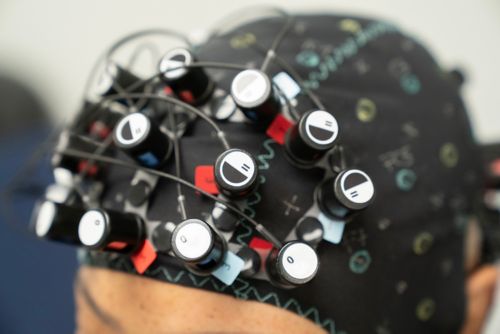St. Jude LIFE researchers want to solve a mystery.
A growing number of Hodgkin lymphoma survivors report problems with their memory. Survivors in their 30s and 40s have memory problems that usually happen in someone in their 60s or 70s.
“So the question is why?” said Nick Phillips, MD, PhD, principal investigator of the HODNIRS study. “The cause of their memory problems is not clear.”
Memory problems in Hodgkin lymphoma patients are puzzling because they do not receive cancer treatments that have direct effects on the brain.
At first, researchers thought the reason might be heart problems. Some Hodgkin lymphoma survivors are at risk for heart problems because of chest radiation or certain chemotherapy drugs.
But the problem is their lungs. Many survivors with lung problems also had memory problems.
“That made us dig into the puzzle a little deeper,” Phillips said. “What is it about their lung function that’s causing them to have problems?”
The brain gets oxygen from the lungs through blood vessels in the neck. Small sensory organs in 2 of these vessels are important for monitoring oxygen levels in the blood and controlling blood flow in the brain. This is an area where many Hodgkin lymphoma patients get radiation. Damage to these sensory organs may affect the blood supply to the brain. This could cause memory problems later in life.
The HODNIRS study aims to find out more about what is happening in the brains of long-term survivors of Hodgkin lymphoma.
Who can take part in the study
Participants must be:
- Hodgkin lymphoma survivors
- At least 2 years past the end of treatment
- At least 18 years old
- Meet certain medical requirements
What the study involves
Participants will walk on a treadmill while wearing a cap with dozens of sensors. The cap is attached to a wireless receiver in a small backpack. The device will show how blood moves to the brain. It will also measure blood oxygen levels.




